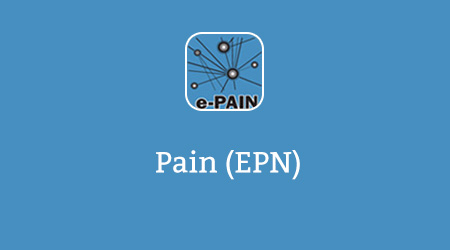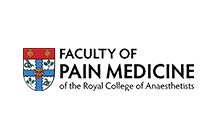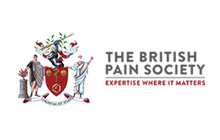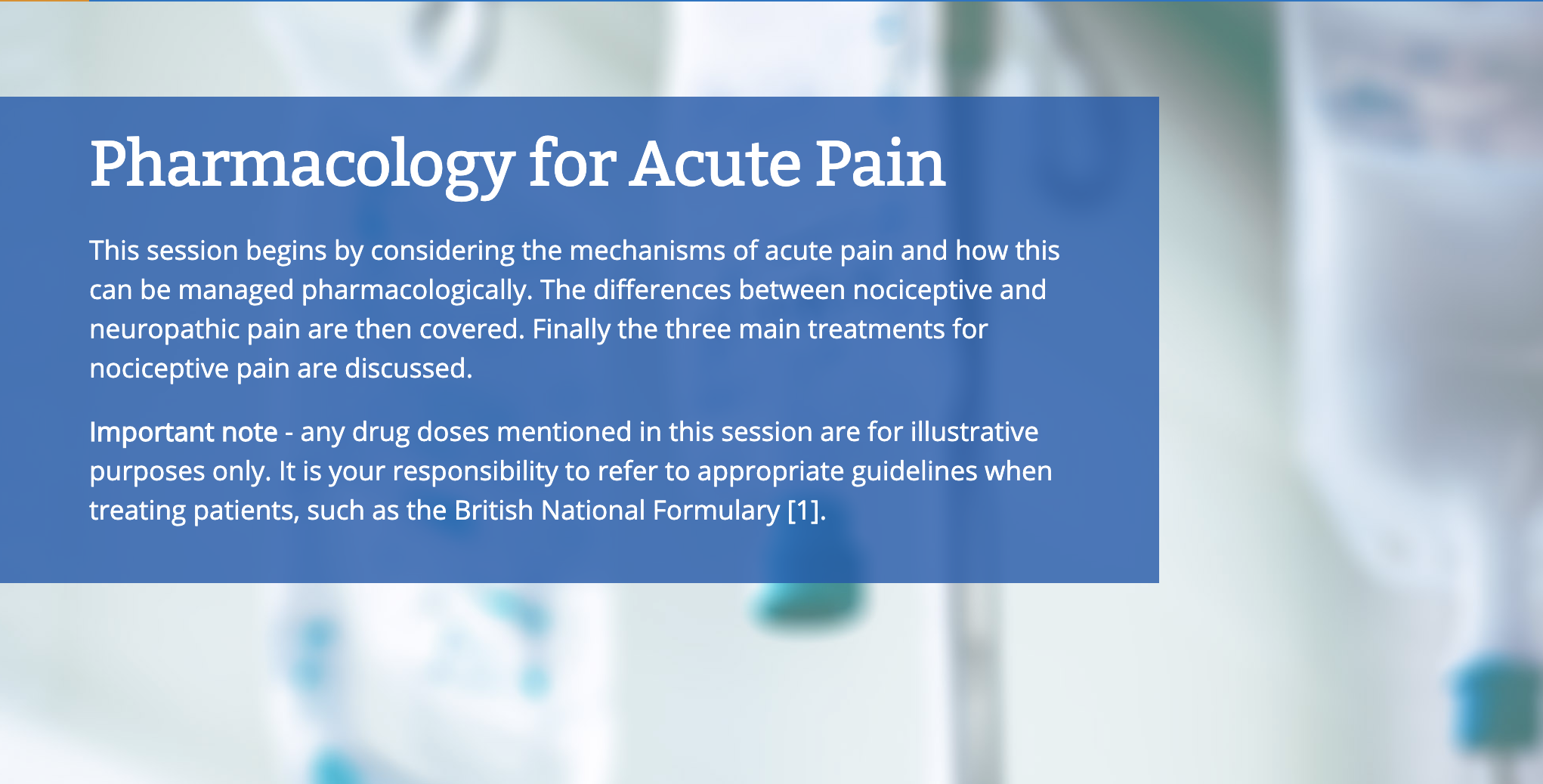About the HEE elearning Pain Management programme
e-PAIN from elearning for healthcare is the place to start for anyone working in the NHS who wishes to better understand and manage pain. e-PAIN is a multidisciplinary programme based on the global organisation, the International Association for the Study of Pain’s recommended multidisciplinary curriculum for healthcare professionals learning about pain management. Registration to the programme is free to all NHS staff members.
Pain touches everyone. It is a universal human experience and one of the most common reasons to seek medical advice. Pain is more than just suffering, it can impact on individuals and affect their day-to-day physical activity, emotional wellbeing and sometimes that of their family. Pain can affect any individual’s ability to work and as a consequence impact on both their community and society as a whole. Pain touches not only individuals – healthcare professionals in many areas understand the impact of poorly managed pain in their everyday work.
e-PAIN uniquely distills the knowledge of a range of professionals into 12 Modules made up of interactive sessions to meet the needs of a multidisciplinary audience. The modules cover knowledge ranging from how to managing acute pain well, through to learning in depth about common pain conditions and moves on to cover how to manage pain in specialist areas, like pain in cancer or pain in childhood. e-PAIN is current, up to date and presented in an interactive way to make both basic and specialist knowledge accessible.
Any e-PAIN module can be completed stand alone and a downloadable certificate is available upon completion of each module; you can view a certificate template by clicking here. Most sessions take on average 30 minutes to complete and each module has on average 5 sessions.
e-PAIN is a collaboration between the The Faculty of Pain Medicine, the British Pain Society and elearning for healthcare. It is provided by Health Education England.
Pharmacology for Acute Pain session object
-
Pharmacology for Acute Pain
This session explains the mechanisms of acute pain and its management using multimodal analgesia.
Session content
The specific issues addressed by the programme’s 30-minute sessions include:
(i) improving the recognition of unrelieved acute and chronic pain in all patients groups;
(ii) appropriate assessment of pain;
(iii) first-class management of pain; and
(iv) ensuring good clinical practice.
Background and approach
Most of the material is written by the elearning pain team; however, the programme will utilise other content on the elfh elearning system as appropriate, including elearning sessions and further reading material. Self-assessment is integral to the user experience and certification of use and assessments are available. Modules are tailored to the experience and training of the user so that all healthcare professionals can:
- consolidate core knowledge required for their role; and
- significantly advance their knowledge to aid improved understanding, attitudes, clinical practice and outcomes.
The development of this educational initiative in pain management utilises the knowledge and skills of the team at the Royal College of Anaesthetists, Faculty of Pain Medicine and its partners who successfully delivered the award winning elearning Anaesthesia programme and, on behalf of the Academy of Medical Royal Colleges, the Academic Medicine module. Authors and editors are also drawn from the executive and membership of the multidisciplinary British Pain Society who have considerable experience in multi-professional educational initiatives.
Project structure
The following modules are available on e-PAIN
-
Module 01
Introducing Pain ManagementModule 01
This module provides an overview and introduction for non-specialists to the topic of Pain Management.
Sessions include:
Epidemiology and the Burden of Pain
Definitions and Mechanisms Underlying Pain
History, Examination and Assessment of Pain
Common Medications and Therapies for Pain
The Module editor is Dr Lyn Margetts.
-
Module 02
Acute PainModule 02
This module provides a more detailed look at acute pain and consists of two sub-modules:
- Introduction
Pain Assessment and Basic Principles of Prescribing
Acute Pain Management of Special Populations – Renal, Hepatic, Sickle Cell
Adjuvant Analgesics and Regional Anaesthesia
The module editor is Dr Jane Quinlan.
-
Module 03
Pain as a long term conditionModule 03
This module explores persisting or chronic pain and what can be done to help people learn self-management skills.
Biopsychosocial Model in Pain Management
Multidisciplinary Management of Chronic Pain
Psychological Assessment and Approach to Treatment
Ways of Supporting Pain Self-Management Strategies
The module editor is Dr Paul Wilkinson.
-
Module 04
Treatments and therapiesModule 04
This module looks at the treatments available for pain, both pharmacological and non-pharmacological.
Non-Steroidal Anti-Inflammatory Drugs
Opioids for Persistent Pain: Overview and Evidence
Opioids for Persistent Pain: Using Opioids in Practice
Antidepressants and Anticonvulsants
Assessing Treatment Effectiveness
Interventional Procedures for Pain Relief
TENS and Alternative Treatments
The module editor is Dr Roger Knaggs.
-
Module 05
Pain conditions around the bodyModule 05
This Module covers important persisting pain conditions that together make up a significant proportion of the burden of pain.
Facial Pain – Principles and Management
Central and Widespread Chronic Pain
The module editor is Dr John Hughes.
-
Module 06
MusculoskeletalModule 06
The Musculoskeletal module was developed in partnership with Keele University and covers the following titles.
The Assessment and Management of Osteoarthritis
Stratified Care for Low Back Pain
Supporting People to Stay at Work or Return to Work
Pain Management in Inflammatory Arthritis
The Assessment and Management of Vertebral Fractures in Osteoporosis
Low Back Pain and SciaticaModule editor is Gail Sowden
Co-editor is Dr Zoe Paskins -
Module 07
Neuropathic painModule 07
This module deals with the diagnosis and evaluation of neuropathic pain and then looks at various instances of neuropathic pain and practical issues with the use of neuropathic pain medicines.
Diagnosis and evaluation of Neuropathic pain
Common Chronic Pain Conditions
Practical Issues in Neuropathic Pain Medicine
The module editor is Lesley Colvin.
-
Module 08
Pain in childrenModule 08
This module will raise awareness of developmental, family, therapeutic and organisational issues that all need to be addressed in order to better manage pain in children.
Musculoskeletal Pain in Children
The module editor is Dr Richard Howard.
-
Module 09
Pain in older peopleModule 09
This module covers the effect of pain in older people.
Assessment of Pain in Older Adults
Common Pain Conditions in Older People
Non-Pharmacological Approaches to the Management of Chronic Pain in Older People
-
Module 10
Special populationsModule 10
This module covers the effect of pain in a number of special populations.
Pain and Analgesia in Pregnancy
-
Module 11
Cancer painModule 11
This module examines pain in cancer patients and looks at the causes and aetiology of that pain and its management via both drug and non-drug therapies.
Causes and Aetiology of Pain in Cancer
Pharmacological Cancer Pain Management
Non-Pharmacological Cancer Pain Management
The module editor is Paul Farquhar-Smith.
-
Module 12
Basic scienceModule 12
This module explains the physiological and anatomical aspects of pain and pain management and makes use of a number of existing sessions drawn from the award-winning elearning Anaesthesia programme.
Anatomy of the ascending pain pathway
Modulation and plasticity in the nociceptive system
BJA Education (formerly CEACCP) is a joint venture between the British Journal of Anaesthesia and the Royal College of Anaesthetists. Together, they have produced many articles related to Pain which can now be found in the e-PAIN eLibrary module. Click here to view the library.
Executive group

Doug Natusch FFPMRCA
Clinical Project Lead
Rhian Lewis FFPMRCA
Deputy Clinical Project Lead
Martin Sinclair
Programme Lead, HEE elearning for healthcare
Daniel Waeland
Head of Faculties, RCoA
Laura Owen
FPM Coordinator, Faculty of Pain Medicine
Jonathan Guy
Project Manager, HEE elearning for healthcare
Neha Baj
Content Development Lead, HEE elearning for healthcare
Project team

Doug Natusch FFPMRCA
Clinical Project Lead
Rhian Lewis FFPMRCA
Deputy Clinical Project Lead
Laura Owen
FPM Coordinator, Faculty of Pain Medicine
Jonathan Guy
Project Manager, HEE elearning for healthcare
Victoria Ward
Learning Designer, HEE elearning for healthcare
Steve Hewitt
Learning Designer, HEE elearning for healthcare
How to access
In order to access the Pain Management programme, you will need an elfh account. If you do not have one, then you can register by selecting the Register button below.
To view the Pain Management programme, select the View button below. If you already have an account with elfh, you will also be able to login and enrol on the programme from the View button.
NHS healthcare staff in England
The Pain Management programme is also available to NHS healthcare staff via the Electronic Staff Record (ESR). Accessing this elearning via ESR means that your completions will transfer with you throughout your NHS career.
Further details are available here.
Not an NHS organisation?
If you are not an NHS health or care organisation and therefore do not qualify for free access elfh Hub, you may be able to access the service by creating an OpenAthens account.
To check whether or not you qualify for free access via OpenAthens, you can view the eligibility criteria and register on the ‘OpenAthens’ portal.
Registering large numbers of users
If you are a HR, IT or Practice Manager and would like to register and enrol large numbers of staff within your organisation for access onto the Pain Management programme, please contact elfh directly.
Organisations wishing to use their own LMS
For HR departments wanting to know more about gaining access to courses using an existing Learning Management System please contact elfh directly to express interest.
How to license
In the event that you do not qualify for free access to the Pain Management programme, you are able to license access through eIntegrity, a community-interest company established for this purpose.
You can check whether or not you qualify for free access by clicking on the ‘Register’ button above.
For more information on the licensing options available for the Pain Management programme, please visit the eIntegrity website.
More information
Please select the following link for more information on how to use the elfh Hub.






